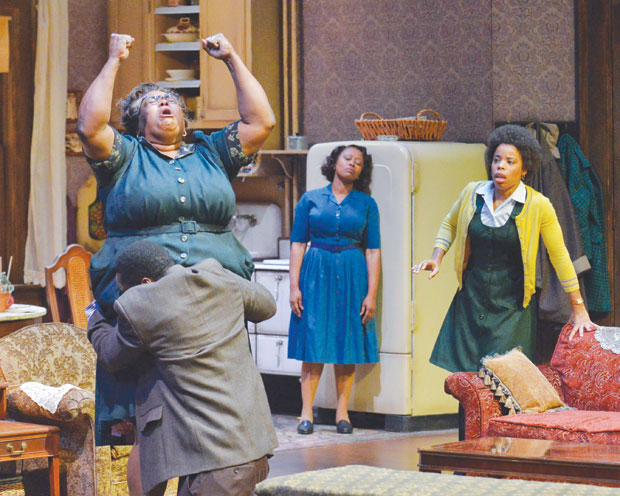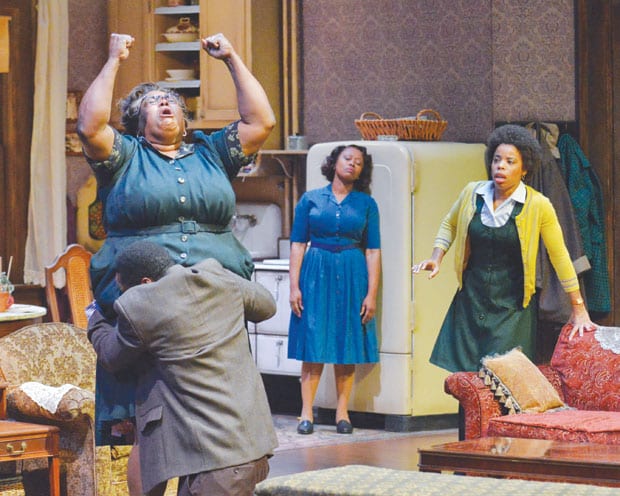
The impressive thing about Lorraine Hansberry’s signature work, A Raisin in the Sun, isn’t that it was the first play by an African-American woman to run on Broadway, but that such a fact hardly matters in the context of its effectiveness. It could just as easily have been written by Arthur Miller or Eugene O’Neill or Tennessee Williams, all of whom addressed, as Hansberry does, the power of self-delusion and the antsy, vague dissatisfaction with modern life.
But Hansberry was African-American, and so her perspective not only resonates as universally as great drama, but as a keen and complex insight into the black experience in the mid-century: Sometimes the characters are confronted by the residue of racism, but mostly they are just trying to make a place for themselves in the world they can be proud of.
And they can be proud of the Dallas Theater Center’s current production, directed ably and with kitchen-sink realism by Tre Garrett. The Younger family are working-class blacks in Chicago who are about to come into a financial windfall. But what should they do with the money? Invest in Walter’s (Bowman Wright) risky business scheme? Pay for flightly Benetha’s (Tiffany Dobbs) education? Buy a suburban house for the whole family? It’s a conversation still held across dining room tables today, and just as relevant.
Hansberry’s play is solid drama — ripe with complex reactions to the characters, none of whom are entirely heroic or entirely bad, touching on issues as shocking still as abortion, gentrification, racial identity — but the strength of this version rests on the legs of Liz Mikel. Portraying the brash matriarch Lena, Mikel’s entrance practically answers the riddle, “What happens when an irresistible force meets an immoveable object?” She becomes a raging Lear-like figure, drawing us into the prosaic majesty of middle class hope.
The title, of course, comes from the Langston Hughes poem that begins, “What happens to a dream deferred? Does it dry up like a raisin in the sun?” That this production arrives 50 years after Dr. King’s “I Have a Dream” speech, it puts in play the entire question of the American Dream, and what it means to the Occupy Wall Street Movement generation and the disenfranchised among us. It’s a question we can’t stop asking.
Wyly Theatre
2400 Flora St.
Through Oct. 27.
DallasTheaterCenter.org.
This article appeared in the Dallas Voice print edition September 27, 2013.

